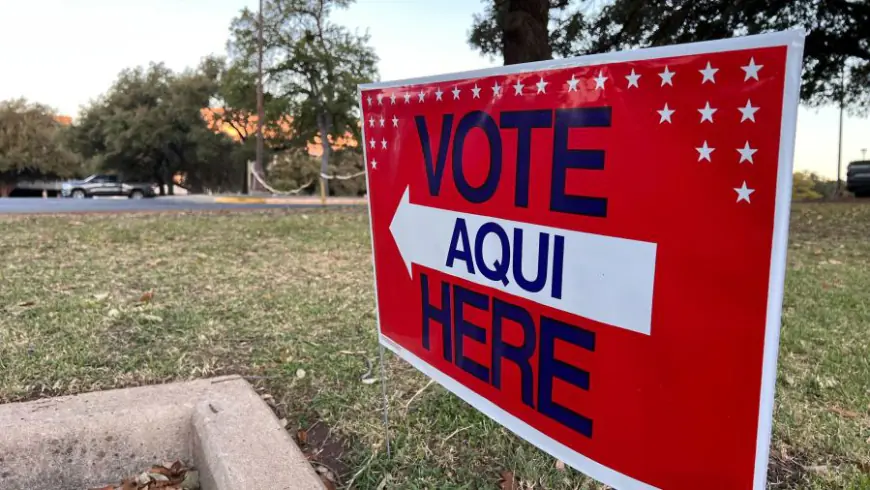Electioneering: Why you can't wear a political T-shirt to vote
The Texas Election Code bans wearing political clothing or handing out politically-motivated materials within 100 feet of a polling location.

AUSTIN (KXAN)—An incident at a San Antonio voting location where a man allegedly assaulted an election worker over a political hat is sparking discussion over electioneering as early voting continues in Texas.
Texas Election Code defines electioneering as the "posting, use, or distribution of political signs or literature." While it is not inherently illegal, electioneering within 100 feet of a polling location is a Class C misdemeanor, the least severe type of crime in Texas. Class C misdemeanors can carry penalties of up to $500.
Both early voting and Election Day polling places are required to mark the 100 foot line, and no signs promoting candidates or parties should be placed within that line.
However, "signs and literature" cover more than just signs or pamphlets. For example, Texas is one of 21 states where voters are not allowed to wear clothing that supports or opposes a candidate, whether it is party or policy.
Using a loudspeaker or other kind of amplifier to make speeches or otherwise electioneer is also banned within 1,000 feet of the polls. Even if the speaker is outside 1,000 feet, if voters can hear the message from within 100 feet, the voting clerk or election judge can choose to contact law enforcement to enforce electioneering rules.
Sometimes, the term electioneering is used to refer to things that are not strictly related to behaviors near polling locations. Earlier this year, Texas Attorney General Ken Paxton sued Hutto Independent School District for what he called illegal electioneering. He accused the district of using government resources to advocate against a certain policy—which does violate Texas Election Code.
Federal law also protects against voter intimidation. Voter intimidation can include aggressively questioning voters about their citizenship, criminal record, who they plan to vote for or otherwise interfering with someone's right to vote. Spreading misinformation about voting, such as needing to speak English to cast a ballot, falls under voter intimidation as well.
The Texas Secretary of State issued an advisory with a guide to what is and is not allowed at polling locations.
What's Your Reaction?









































































































